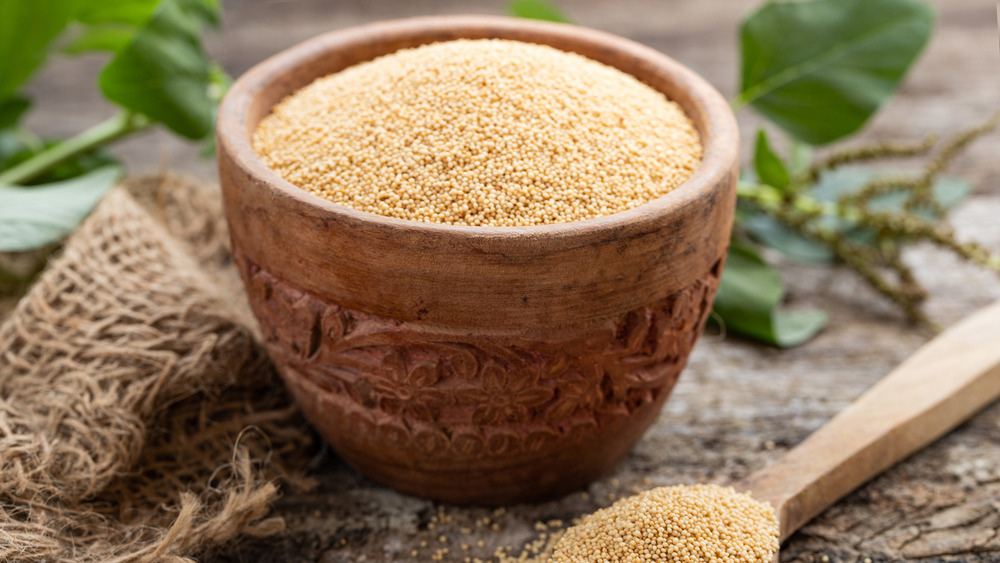Here's What You Need To Know Before Using Amaranth
Amaranth has tons of health benefits. The Aztecs discovered the pseudocereal thousands of years ago and called the grains the "food of immortality." Just like cauliflower as a healthy swap for rice, amaranth can also be a healthy alternative — if not healthier (via Whole Grains Council). Amaranth is also perfect for breakfast as it can replace your morning bowl of cereal.
The whole grains look similar to their cousin quinoa but are smaller in size. Amaranth has more health benefits, as the fiber and iron content in amaranth is greater than that of quinoa. In addition, the Aztec food crop contains phytosterols that its counterpart lacks. Sonya Angelone, a nutrition expert, notes that the gluten-free superfood has a lot of nutrients, and more "calcium, magnesium, iron, carotenoids, and fiber than most vegetables or grains." Not only that, amaranth "is one of the plant foods highest in protein and also the only grain with some vitamin C," she explains (via Women's Health).
In relation to nutrients, the pseudocereal also contains vitamin B6 — the water-soluble vitamin that boosts moods and promotes a good night's rest. But the goodness in amaranth does not stop there. The whole grains contain thiamine and riboflavin, the nutrients responsible for brain function and energy. Squalene is also present in the superfood — the organic compound that helps lower the risk of cancer. Amaranth is truly phenomenal, with countless health benefits. Making it a staple in your diet can make you healthier overall.
Rinse and soak amaranth before cooking
Washing meat and vegetables in running water is usually the first step in food preparation. Rinsing is essential to get rid of dirt and germs, and the important step can reduce the chances of becoming sick from harmful bacteria. Although amaranth comes packaged, it still passed through many hands before getting to store shelves. In addition to rinsing away germs, washing amaranth can also get rid of saponin, a phytochemical which can have a bitter taste (via Women's Health).
According to the Clean Living Guide, seeds, grains, and nuts contain natural pesticides that can be harmful to humans. Patryce Bak, a holistic health coach, suggests soaking amaranth in water and vinegar — or even broth. The acids will get rid of the natural pesticides and help the grains to sprout. She recommends doing the process for a minimum of six hours up to a day. By skipping this important step and eating unsoaked amaranth, you run the risk of irritating your gut and slowing digestion. There's also the added stress put on the pancreas.
Soaking can also reduce cooking time. You can prepare amaranth the day before, and when ready, Bak suggests rinsing the grains with water one more time. You can eat the superfood in various meals throughout the day, and your body will thank you for it.

